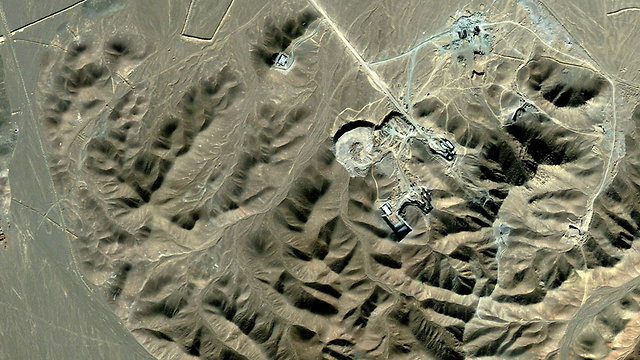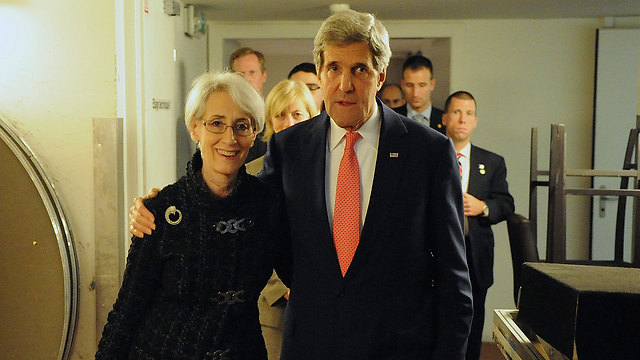With Iran refusing US demands that it gut its uranium enrichment program, the two sides are now discussing a new proposal that would leave much of Tehran's enriching machines in place but disconnected from feeds of uranium, diplomats told The Associated Press Saturday.
Ahead of the resumption of talks Friday, the New York Times reported that Washington was considering putting a new plan on the table that would focus on removing the piping connecting the centrifuges that enrich uranium, instead of demanding that Iran cut the number of centrifuge machines from 19,000 to no more than 1,500.
The talks have been stalled for months over Iran's opposition to sharply reducing the size and output of centrifuges that can enrich uranium to levels needed for reactor fuel or weapons-grade material used in the core of nuclear warheads. Iran says its enrichment program is only for peaceful purposes, but Washington fears it could be used to make a bomb.
Time is running out before a November 24 deadline and both sides are eager to break the impasse.
Ahead of the resumption of talks Friday, the New York Times reported that Washington was considering putting a new plan on the table that would focus on removing the piping connecting the centrifuges that enrich uranium, instead of demanding that Iran cut the number of centrifuge machines from 19,000 to no more than 1,500.
Two diplomats told the AP that Tehran was initially non-committal at a bilateral meeting in August. But they say the proposal has now moved to being discussed at the talks Tehran is holding with the US and five other powers, and that the Islamic Republic is cautiously receptive.
Both diplomats demanded anonymity because their information is confidential.
While only a proposal, the plan would allow the Iranians to claim that they did not compromise on vows that they would never emasculate their enrichment capabilities, while keeping intact American demands that the program be downgraded to a point where it could not be quickly turned to making bombs.
The talks bring Iran to the negotiating table with the United States, Russia, China, Britain, France and Germany on the sidelines of the UN General Assembly. That means US Secretary of State John Kerry and his counterparts will likely join in, adding their diplomatic muscle to the meeting.
Ahead of the talks, chief US negotiator Wendy Sherman acknowledged that the sides "remain far apart" on the size and scope of Iran's uranium enrichment capacity.
Iran's demands that it be allowed to keep its program at its present size and output are not acceptable and will not give Iran what it wants – an end to the nuclear-related sanctions choking its economy, she told reporters.
"We must be confident that any effort by Tehran to break out of its obligations will be so visible and time-consuming that the attempt would have no chance of success," she said of Washington's push for deep, long-lasting cuts.
Other contentious issues are what to do with an underground enrichment plant near the village of Fordo and with a reactor under construction near the city of Arak.
The US wants the Fordo facility converted to non-enrichment use because it's heavily fortified against underground attack. And it wants the reactor converted to reduce to a minimum its production of plutonium, an alternate pathway to nuclear arms.
The deadline was extended to November 24 after the sides failed to reach agreement by the end of July.

















